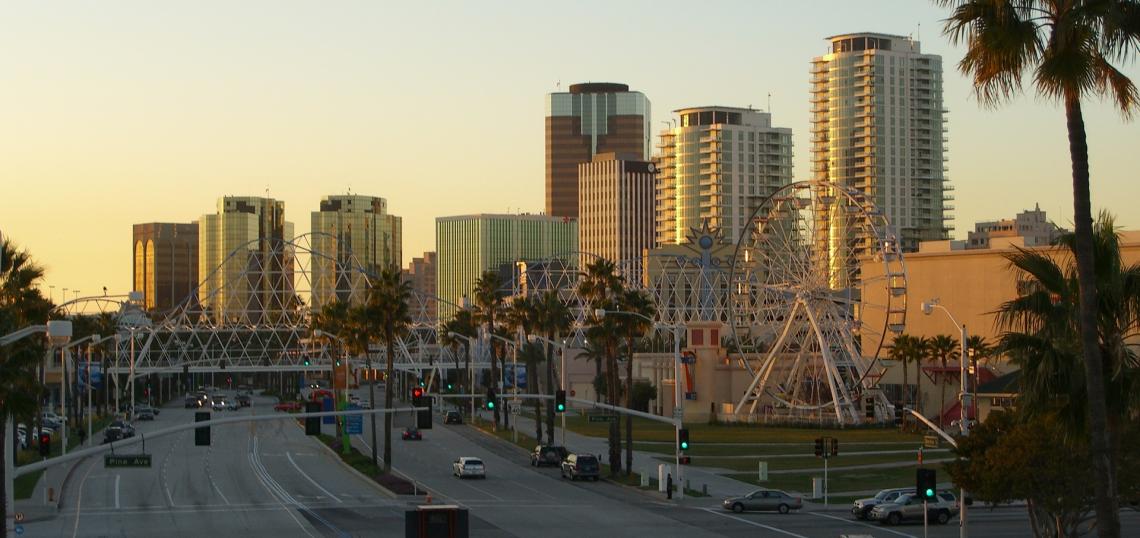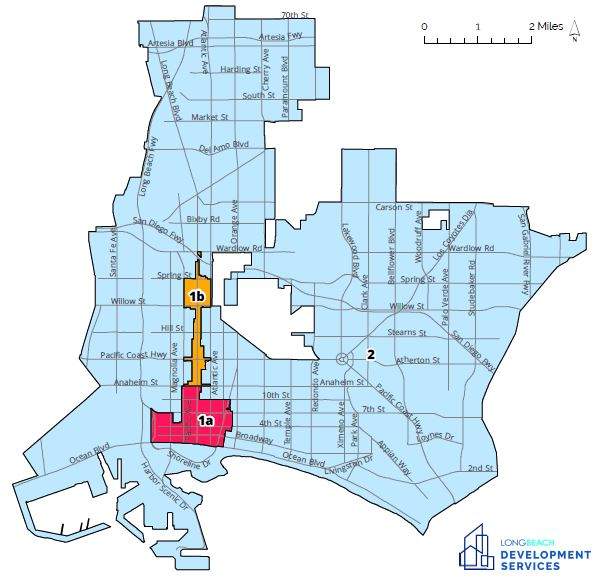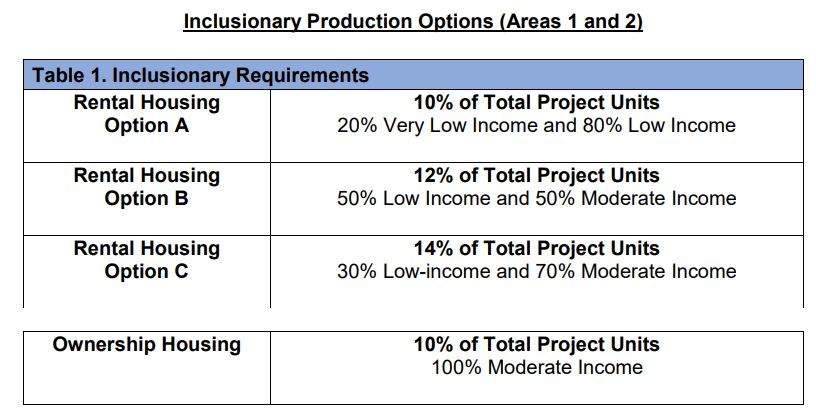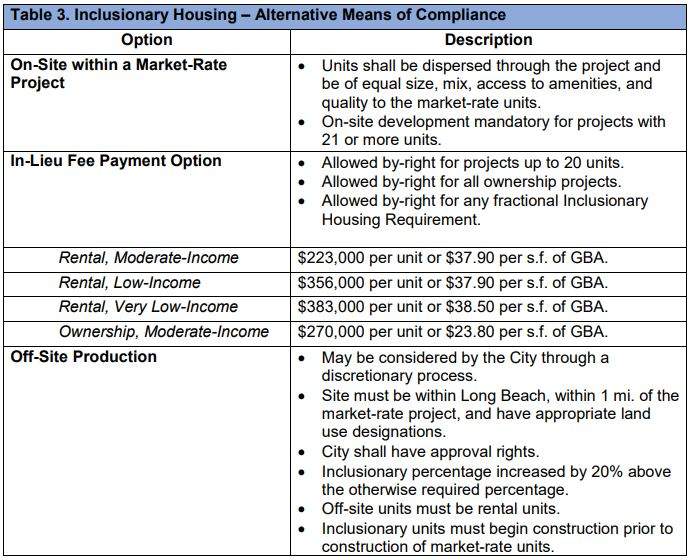The City of Long Beach is inching closer toward requiring affordable housing in new residential developments citywide.
The proposed inclusionary housing policy, which is scheduled for discussion at this week's meeting of the Long Beach Planning Commission, is slated to take effect in the City's Downtown and Midtown neighborhoods (Area 1) on October 1, 2020. After that point, new developments consisting of 10 or more residential units would be required to provide on-site affordable housing of pay an in-lieu fee. Projects which have completed entitlement applications prior to the October deadline would be exempt.
Implementation of the policy would be delayed in the rest of Long Beach (Area 2) until January 2021 to coincide with an update to the City's Density Bonus ordinance. Unlike the mandatory set-asides proposed in Downtown and Midtown, Area 2 is slated for an incentive-based program based on the density bonus program, though potentially with greater incentives. The incentive-based requirement would be activated in projects with 10 or more residential units, and is to be focused on residential and mixed-use zoned land, as well as commercial propertyes that are not currently zoned for housing.
The recommended incentive-based approach in Area 2 is the result of an economic feasibility study, which found that little housing had been developed outside of the Downtown and Midtown areas over multiple real estate cycles. The incentive-based approach
Long Beach's inclusionary policy could take several different forms, as detailed in the charts below:
The staff report recommends that the City should adopt Rental Housing Option B, which calls for 12 percent of total project units to be set aside for low-income and moderate-income households - meaning those making at or below 60 and 110 percent of the area median income, respectively.
The 12 percent set-aside would be implemented in phases over four years:
- 2020/2021: 5 percent
- 2022: 6 percent
- 2023: 8 percent
- 2024: 12 percent
The staff report recommends a 10 percent set-aside in for-sale housing developments, with the following phased implementation schedule:
- 2020/2021: 4 percent
- 2022: 5 percent
- 2023: 7 percent
- 2024: 10 percent
Additionally, the policy is set to include alternative means of compliance, as detailed in the following chart:
Should a developer wish to convert a building subject to the inclusionary housing requirement from rental apartments to for-sale condominiums, they must fulfill one of the following requirements:
- maintain the inclusionary units at the affordable rents; or
- convert the unit for sale based on the income and affordability level imposed during construction, with the existing tenant having first right of option to purchase their unit; or
- relocate the tenants under the terms of the City's condominium conversion ordinance, then sell the inclusionary housing unit to a moderate-income household.
The inclusionary housing plan calls for rental units to be subject to affordability requirements under a 55-year covenant, and for-sale units under a 45-year covenant.
In-lieu fees will be paid into an inclusionary housing fund, with 30 percent of the collected fees to be used for moderate-income housing and at least 70 percent to be used for lower-income housing.
Should the City of Long Beach officially adopt the inclusionary housing program, it will be subject to an initial review in three years, and a re-evaluation every five years.
Though Long Beach and other Southern California jurisdictions are now requiring developers to set-aside affordable units in new housing projects, inclusionary housing was made illegal statewide for nearly a decade as the result of the 2009 court case Palmer/Sixth Street Properties, L.P. v. City of Los Angeles, where the 2nd District Court of Appeal found that such policies were pre-empted by the Costa-Hawkins Rental Housing Act. However, new state legislation passed on 2018 has freed jurisdictions to once again consider mandating affordable set-asides.
Two members of the Los Angeles City Council have proposed inclusionary policies for Boyle Heights and Westlake, and potentially citywide.
- Long Beach (Urbanize LA)









